Symposium 21:Smoking and tuberculosis: a dangerous combination
Tobacco smoke has a profound impact on airway inflammation and is well-documented to be strong risk factor for COPD and lung cancer. Meanwhile, tobacco smoke also impair the immunity of alveolar macrophages and lymphocytes, which may lead to increased risk of pulmonary infection, including pulmonary tuberculosis (PTB).
Tobacco smokers are two to three times more likely to develop PTB compared to non-smokers. Smokers who have TB have a much harder time recovering from the disease and are more likely to experience relapses and impairment of lung function or pulmonary sequalae.
The interaction between tobacco smoke and TB is a complex one, with tobacco smoking increasing the risk of developing TB and compromised the treatment outcomes. The aim of this symposium is to elaborate the impact of smoke on lung immunity and it association with risk of PTB.
| Time (GMT+8) |
Topic | Speaker | Country / Region |
|---|---|---|---|
| 09:00-09:30 | The impact of Tobacco Use on TB transmission Dynamics and Treatment Response | Dr. Chuan-Chin Huang | USA |
| 09:30-10:00 | Smoking cessation: the experiences in Hong Kong | Dr. Chi Chiu Leung | Hong Kong |
| 10:00-10:30 | Impact of cigarette smoke on lung health: interaction between smoke and tuberculosis | Dr. Sheng-Wei Pan | Taiwan |
The impact of Tobacco Use on TB transmission Dynamics and Treatment Response
Abstract:
Tobacco consumption, particularly cigarette smoking, threatens ongoing and future global tuberculosis control efforts. Recent estimates suggest that 18% of tuberculosis cases and 15-20% of tuberculosis-related mortality can be attributed to tobacco smoking in countries with a high burden of tuberculosis. Despite a decline in the global prevalence of smoking over the past two decades, the World Health Organization estimated that 33% of the global adult population smoked in 2020. Previous studies have demonstrated that individuals who actively smoke or are exposed to secondhand smoke have an increased susceptibility to TB infection, an elevated likelihood of disease progression after being infected, and a heightened risk of experiencing poor treatment outcomes after developing TB disease. Tobacco use also modifies the transmission dynamics of TB. TB patients who are active smokers are more likely to transmit tuberculosis to their close contacts although we have shown that this risk decreases significantly shortly after TB patients quit smoking. Social network analyses and molecular epidemiological studies have indicated that the assortative mixing pattern or tobacco user further exacerbates the impact of tobacco use on TB control. These findings have led researchers to advocate for the inclusion and expansion of smoking cessation interventions in national tuberculosis programs.
Dr. Chuan-Chin Huang

USA
Smoking cessation: the experiences in Hong Kong
Abstract:
Smoking affects almost all organs in our body and kills up to half of smokers who don’t quit. Smoking cessation, one of the most cost-effective interventions, benefits smokers of all age. Helping smokers to quit the highly addictive tobacco is also critical to the success of other tobacco control measures. The Tobacco and Alcohol Control Office (TACO) was set up in Hong Kong in 2001. The Framework Convention on Tobacco Control (FCTC) was signed and ratified by The People’s Republic of China in October 2005. In line with Article 14 of the FCTC, Hong Kong has been investing great efforts on smoking cessation, including smoking cessation hotline, smoking cessation clinics, smoking cessation programs for targeted groups, Smartphone Quit Smoking App and “Quit to Win” smoke-free community campaign, etc. The 52-week quit rates of smoking cessation services ranged from 20% to 60%, In April 2012, TACO was designated by World Health Organization as the Collaborating Centre for Smoking Cessation and Treatment of Tobacco Dependence in the Western Pacific Region, Through a multi-pronged approach using legislation, taxation, education and publicity, banning of tobacco advertisement, law enforcement and offer of smoking cessation services, Hong Kong has reduced the smoking prevalence from 22.3% in 1982 to 9.5% in 2021. However, more than 20% of smokers still do not know, and more than 65% have never tried, any specified smoking cessation services or methods. As much more need to be done, a public consultation on tobacco control strategies was launched in July 2023 to work towards a vibrant, healthy and tobacco-free Hong Kong.
Dr. Chi Chiu Leung

Hong Kong
Impact of cigarette smoke on lung health: interaction between smoke and tuberculosis
Abstract:
Smoking is a well-known risk factor for the development of tuberculosis (TB). Notably, even exposure to passive smoking, as validated by the measurement of urinary nicotine levels, is also a substantial risk factor for active TB. Furthermore, smoking exerts a considerable influence on the outcomes of TB treatment, manifesting in the postponement of sputum culture conversion and extension of the treatment duration. Moreover, smokers exhibit an elevated mortality rate associated with TB in comparison to non-smokers.
Regarding the influence of cigarette smoke on host factors predisposing susceptibility to Mycobacterium tuberculosis (MTB) infection, the constituents of cigarette smoke impede mucociliary clearance, and induce deficiencies in the immune response of macrophages. Remarkably, nicotine, operating via the α7 nicotinic receptor, attenuates the production of tumor necrosis factor-α by macrophages and induces a reduced synthesis of interleukin-12. This effect impedes the formation of granulomas, which play a crucial role in containing the infection during this stage in immunocompetent individuals. Instead, it creates conditions conducive to the progression of active TB.
In addition to its impact on host responses, recent investigations have explored the influence of cigarette smoke on the mutagenesis and transcriptional profiles of MTB. Following exposure to cigarette smoke condensate, comprising 55.8% nicotine, there was a more than two-fold increase in the mutation frequency of MTB compared to control exposure. The heightened mutation frequency, as indicated by phenotypic rifampicin resistance, implies that cigarette smoke may have mutagenic effects on MTB, potentially leading to drug resistance. Moreover, cigarette smoke condensate may induce an oxidative stress response in MTB, resulting in specific gene expression phenotypes correlated with drug tolerance, treatment failure, and human TB relapse.
This discussion aims to comprehensively review the potential role of cigarette smoke in the pathogenesis of TB, considering its impacts on both host and pathogen dynamics.
Dr. Sheng-Wei Pan

Taiwan
Dr. Jia-Yih Feng

Taiwan
With an extensive background in respiratory medicine, Dr. Feng has made significant contributions to the field through his research and clinical expertise. His work encompasses critical aspects of infectious diseases, particularly focusing on respiratory infections caused by Gram-negative bacteria. Dr. Feng’s commitment to advancing medical knowledge is evident in his involvement as a corresponding author in publications addressing the progression of nontuberculous mycobacterial lung disease, the efficacy of nebulized colistin in nosocomial pneumonia, and the clinical effectiveness of tigecycline in combination therapy for nosocomial pneumonia caused by carbapenem-resistant Gram-negative bacteria. Dr. Jia-Yih Feng’s multifaceted contributions reflect his commitment to improving respiratory health and advancing medical science.




